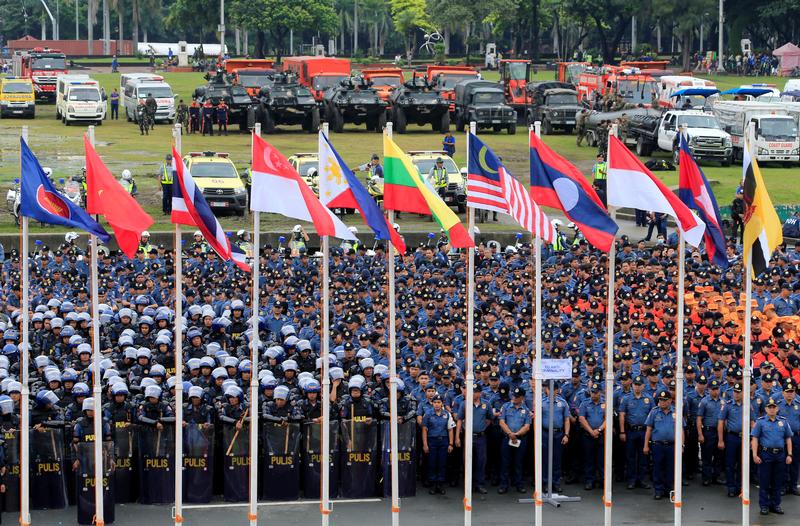ASEAN member states met at the United Nations to set up a framework for border control cooperation as latest statistics showed that illicit trade and organised crime amounts to $100 billion in the region.
Thailand’s Ministry of Foreign Affairs and the United Nations Office on Drugs and Crime (UNODC) hosted ASEAN representatives at the conference, headlined “ASEAN 2025: Synchronising Economic and Security Agendas,” to address security challenges posed by the region’s rapid economic expansion.
Key issues raised included cross-border security and crime along with measures to bolster regional border management.
With Thailand likely to play a pivotal role as ASEAN chair next year, international agencies such as the UNODC are working with the country to achieve the UN’s sustainable development goals, particularly peace, justice and strong institutions, observers say.
“This region is not immune to transnational crime. It’s a $100 billion industry,” said Jeremy Douglas, a representative of the UNODC Regional Office for Southeast Asia and the Pacific.
“Synthetic drugs like methamphetamine have seen a tenfold increase in seizures, alongside serious human trafficking in the region. These criminals don’t care about borders or human rights and target weak member states to run illicit activities,” Douglas said.
He said the problem of poorly controlled borders has led to crackdowns on opium smuggling through Thailand despite promising efforts to wipe out domestic production. Due to poor cooperation and enforcement efforts, the kingdom continues to be a channel for the international illicit drug trade as mafia produce the drugs and move them from Burma and Laos.
“Anti-corruption is one of the key policies of the government. We work with the UNODC because we know that we cannot work on this alone,” said Suriya Chindawongse, director-general for ASEAN affairs at Thailand’s Ministry of Foreign Affairs.
[related]
Countries such as Cambodia, Laos and Burma suffer the most from transnational crime due to technological gaps, as organised crime tends to take advantage of member states with significant vulnerabilities.
“We really have to look at how we can secure borders. We are looking at a framework that will help address cross-border flows of illicit activity in the region,” Suriya said.
The conference sought binding commitments at the ministerial level for tightening border control. “We should not allow these criminal activities to disrupt the connection among our nations. More than economic, it affects human lives. We need to tackle them collectively,” said Thai Deputy Prime Minister and Minister of Justice Prajin Juntong.
This story was originally published by the Bangkok Post here.



